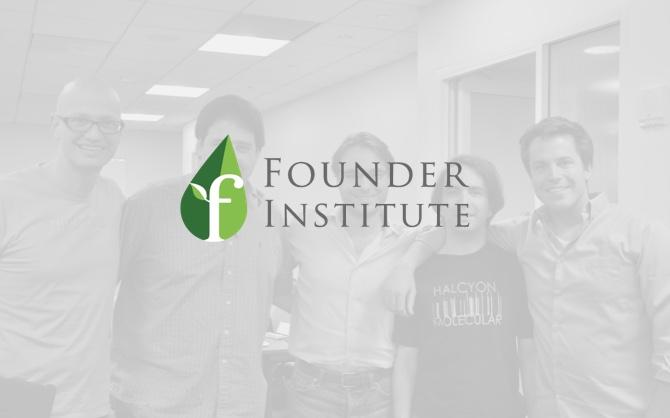
Will a startup succeed or fail? Predicting the fate of a business in its early stages is challenging due to the absence of relevant data. However, you can evaluate the founders of a company quite accurately. And we don’t mean their skillsets or experience but rather their psychological traits and attitudes.
Startup investors and accelerators are constantly seeking tools to effectively assess co-founders. They employ various approaches, including mentorship, peer evaluation, and self-assessment. As a result, a growing body of data now supports the assumption that the outcomes for a startup - such as how quickly it will iterate, scale, raise funding, drive revenue, and build following - depend on the personalities of the co-founders and how well they blend together.
Startingly, according to recent statistics, bad co-founding team composition is among the top three reasons startups fail. This highlights the crucial role of team dynamics and composition in determining the ultimate development of a venture.
In this article, we delve into the scientific insights surrounding the psychology of entrepreneurs. We will explore the qualities and attributes that distinguish exceptional co-founders - those who possess the ability to not only build and grow successful startups but also provide unwavering support to their teams. Through examining these key traits, we hope to shed light on what lies at the core of entrepreneurial success and team synergy in the startup world.
The Entrepreneur Personality
Not everyone follows through with a business idea and starts a company. Entrepreneurship requires a heightened sense of autonomy, openness to experience, and self-reliance. Apart from these three substantial characteristics that differentiate startup founders, there is a whole mix of traits signifying that someone will perform well at running their own show.
One of the most objective methods used to evaluate the attitudes of startup founders is through multiple-choice personality tests. Various scientists and organizations have worked on the relationship between one of the most popular psychographic frameworks, The Big Five, and the entrepreneurial mindset. In a study of Asia Pacific Journal of Innovation and Entrepreneurship, a sixth element contributing to entrepreneurship intention is added to the package - entrepreneurial alertness. The main finding here is that this new category serves as a bridge between the individual Big 5 traits and affects entrepreneurial intention.
Furthermore, a 2019 research study focused explicitly on risk attitudes among entrepreneurs and members of venture teams. The findings revealed a fascinating interplay between risk tolerance, self-efficacy, the need for achievement, and innovativeness. Notably, entrepreneurs have demonstrated the highest self-reported risk tolerance, setting them apart from both inventors and non-inventor employees. Additionally, entrepreneurs have exhibited a greater risk tolerance than non-founder CEOs/leaders, although the difference was statistically borderline.
Solopreneur vs. Co-Founding Team
There are multiple examples of flourishing ventures run by solopreneurs. Not all first-rate startups need to have a co-founding team. And yet, distributing responsibilities between co-founders has undeniable benefits, including financial stability, emotional support, and adding a different perspective.
Eventually, a single entrepreneurial mindset might be insufficient to ensure a startup’s success.
Co-Founding Team Dynamics
When evaluating startups, investors look beyond individual entrepreneurial attitudes. In a startup environment, critical decisions and actions are made collectively through collaboration. Therefore, to gauge team performance and areas for improvement, it’s necessary to assess the dynamics within a team. In his study Assessing Startup Teams and Team Dynamics from an Investor’s Perspective, Valtter Vihervuori analyses factors influencing team development, like diversity, role clarity, background, and shared knowledge. He then proposes a process that involves utilizing team-related interview questions to gain insights.
Vihervuori’s methodology observes human capital at an individual and a group level, claiming that the collective level has a stronger effect on the future accomplishments of a startup. Nevertheless, the group is nothing else but the sum of its integral parts; hence, when evaluating new ventures, the most dependable method is to assess each team member individually.
With this in mind, we looked closer at the personality traits of the good co-founder.
How to Recognize a Good Co-founder
After reviewing what other sources say about entrepreneurship mindset and team dynamics, we want to share some of the repetitive trends we have discovered from evaluating founders who apply for FI’s Core program. You can use them to distinguish the qualities that make a good co-founder.
1. Team Player
Undoubtedly, a valuable co-founder should possess the qualities of being both efficient and a strong team player. To determine these attributes, we have conducted extensive research and regression analysis using the Entrepreneur DNA assessment. Our data shows that people who excel within a team environment tend to exhibit high scores in traits such as Trust, Self-Reliance, Achievement, Dependability, Innovation, and Emotional Control. Additionally, they typically demonstrate moderate levels of Assertiveness and Agreeableness.

2. Combinations of traits
In decoding the characteristics of co-founders, we have noticed several combinations of traits that interact with each other, affecting certain aptitudes.
-
Communication - Assertiveness, Social skills, Collaboration, Trust, Agreeableness
-
Drive - Perseverance, Self Reliance, Motivation, Achievement, Risk Tolerance, Competitive
-
Working Style - Decisiveness, Autonomy, Planning, Proactivity, Management, Dependability
-
Problem Solving - Adapabilty, Emotional Control, Optimism, Patience, Curiosity, Intuition
Caution! If any co-founder has three or more low scores on traits in the above categories.
3. Balancing out traits
One co-founder's strengths can complement and compensate for the traits that may be lacking in another co-founder.
Example: Founders who have high Adaptability, Assertiveness, and Autonomy are excellent at keeping their companies alive, but they might also be reluctant to innovate or pivot. Ideally, their co-founders should possess high Adaptability, Curiosity, and Collaboration
Caution! On the other hand, some particular levels of traits within a co-founding team may be incompatible or not aligned with each other. Here are a few examples:
-
One founder with low Trust + One founder with low Social skills
-
One founder with low Agreeableness + One founder with low Social skills
-
One founder with high Proactivity + One founder with low Acheivement
-
One founder with high Dependability + One founder with low Dependabilty
-
One founder with high Dependability + One founder with low Planning
-
One founder with high Risk Tolerance + One founder with low Risk Tolerance
 .
.
Conclusion
In the quest for detecting a great co-founder, respective personality testing tools and metrics have emerged. While these assessments continually evolve, regression analyses reveal that they closely align with predicted outcomes. One example is the Entrepreneur DNA Test, pioneered by the Founder Institute over the past 15 years. This methodology has been refined and enriched with new data, evaluating over 175,000 entrepreneurs and 6,800+ portfolio companies across six continents.
Interestingly, our findings indicate that 85.1% of founders tested either performed as expected or outperformed their DNA test results. This quantitative approach offers invaluable insights for evaluating potential co-founders or co-founding teams.
Aiming to identify high-potential co-founders? Take advantage of Founder Institute’s Entrepreneur DNA Test.
The Founder Institute is the world’s most proven network to turn ideas into fundable startups, and startups into global businesses. Since 2009, our highly-structured accelerator programs have helped entrepreneurs raised over $1.75BN in funding across over 200 cities worldwide.
Learn more about the Founder Institute at FI.co, or join an upcoming startup event at FI.co/events.



